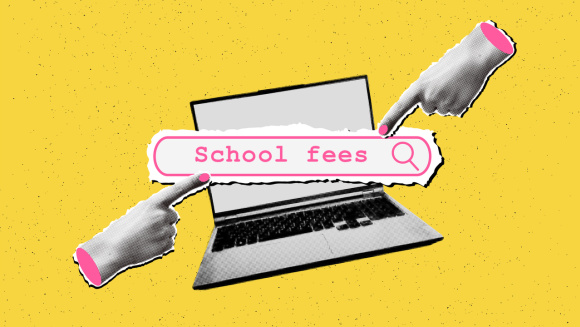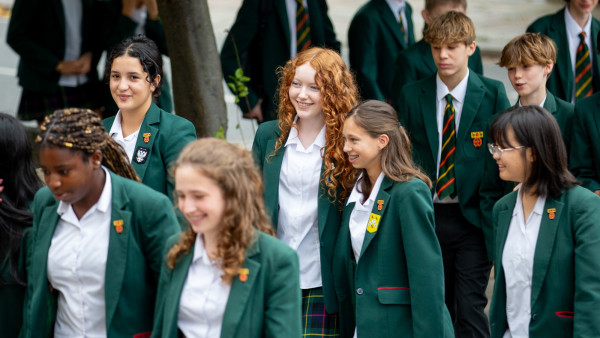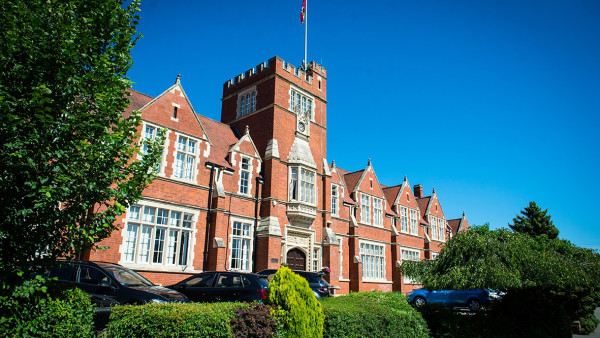The future of private school fees

What you need to know about school fees
Independent schools are expensive. Putting to one side all the optional (and not so optional) extras – music lessons, trips, uniform, sports kit etc - parents shelling out full fees are often paying sums well above the average UK annual income. Few families choosing private schools can do so without a certain amount of belt tightening and penny counting.
With the exception of the Covid-19-afflicted year of 20/21, the trend over recent decades has been for school fees to increase each year on average by 3 to 4 per cent - a rate that has generally been above the UK rate of inflation. That changed in 2021 as the rate of inflation finally surged above that of fee increases. In turn, 2023 saw a big jump in school fees (up an average of 6 per cent according to the Independent Schools Council) as they attempted to play catch-up, although staying, on average, just shy of the rate of inflation. And with parents seemingly still willing to pay them, the trend for constant increases is only likely to continue.
The most expensive schools are in or close to London where larger salaries and property assets can help foot the bill, but the ripple effect is huge, with schools across the country targeting constant improvements to buildings, facilities and equipment.
What about VAT?
Historically, all private schools, as education providers, were exempt by law from charging VAT on their fees. In addition, the majority of private schools are charities and so also receive an 80 per cent discount on business rates. The Labour Government elected in 2024 decided that this situation unfairly favoured the private sector and that changing it would be a way of raising money for the cash-strapped state education system. VAT is now charged on school fees at 20 per cent and although many schools were able to absorb some of the increase, parents generally found, come the first fee invoice of 2025, the sum they were paying was between 10 and 15 per cent bigger than the previous bill.
It remains to be seen how schools will try and keep fees affordable for their existing families and any future customer base. There is a possibility that a knock-on of VAT is that some schools reduce staff numbers, offer fewer activities and decrease money spent on scholarships and bursaries.
For our latest advice and insights into UK school fees, VAT and scholarships and bursaries, sign up to receive our newsletter
Sign up nowHow much does private school cost?
We’ve analysed independent day school fees to work out what parents can expect to pay for the duration of their child’s education. Our calculations include the new VAT costs and also have included annual increases of between 4.5 and 5 per cent. A family whose child starts school (in reception) in 2026 at the expensive end of the market in London will have spent a sum close to £670,000 by the time A levels are done and dusted. A school which is priced closer to the UK average will be considerably less but at £410,000 over 14 years, it’s still a major investment. No surprise that many parents choose to use both state and private sectors.
Not all London day schools cost the same as Thomas’s Kensington (£32,706) or Westminster School (£47,682 – in the sixth form). Private education in the capital can be much more affordable – Blackheath High GDST Junior School charges up to £19,401, St Benedict’s in Ealing, up to £25,485. If you look further afield, you will find even lower fees – Bristol Grammar School Junior charges up to £13,308 and Kingsley Prep in Devon up to £13,875, and at secondary level, Bolton School (Boys’ and Girls’) up to £14,316, Bablake School in Coventry up to £18,507 and Our Lady’s Abingdon near Oxford up to £23,040.
Is it worth the money?
In September 2022 we explored the question 'Is private school still worth the money?' Demand from UK and overseas families shows that a British private school education, despite the price hikes of recent decades, remains an attractive option for families. Ralph Lucas, editor-in-chief of The Good Schools Guide, says that parents need to be sure of what they’re getting before signing on the dotted line. ‘For an investment of more than £400,000, parents could buy their child property or set them up in business. So, what do parents want for their money? Private schools don’t hold a monopoly on good grades and, with contextualised admissions, their superiority in guiding students to the top universities seems to be falling away. But they will continue to offer more time and resources in a nurturing setting to allow your child to develop in confidence and make the most of their talent. And for parents, the longer school day is more conducive to working life, and circumventing the state school lottery with its risk of landing in an underperforming school will always be something parents are willing to pay for.’
What happens next with school fees?
Whatever happens, school fees will continue to rise. As sure as death and taxes. So, how will schools manage this change? After all, few schools have a reputation and appeal such that they need only pay attention to the needs of multimillionaires. The Good Schools Guide editor-in-chief, Ralph Lucas, would like private schools to work with parents to decide what expenditure they are prepared to cut. ‘Fees have gone up over the years because parents have wanted inessentials. Whether it’s impressive facilities or niche subjects and activities, parents should be consulted as to what they regard as important. There are some much lower cost models of independent education around, focussing on what matters and being innovative in getting there.’
Lucas suggests that schools too, should look to each other in a bid to reduce costs. ‘Everyone simultaneously reducing or freezing their fees means no relative disadvantage and no risk to reputation. At its heart independent education is not about fees, it’s about education. Discipline, breadth, ambition, curriculum and ethics is what parents pay for and there are plenty of examples of schools where these can be obtained for far less than £670,000.’
A version of this article was first published 3 November 2021
If you're looking for guidance on applying for financial support at private schools, our education consultants can support you through the process.
Find out moreFeatured in: Independent schools
Tags: Opinion Choosing a School Fees






